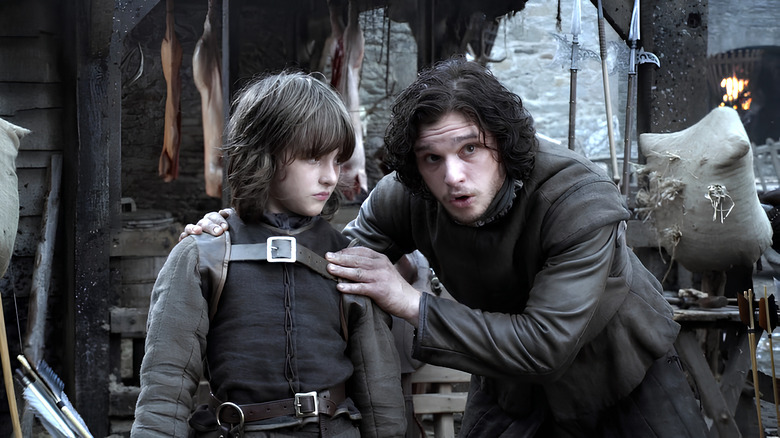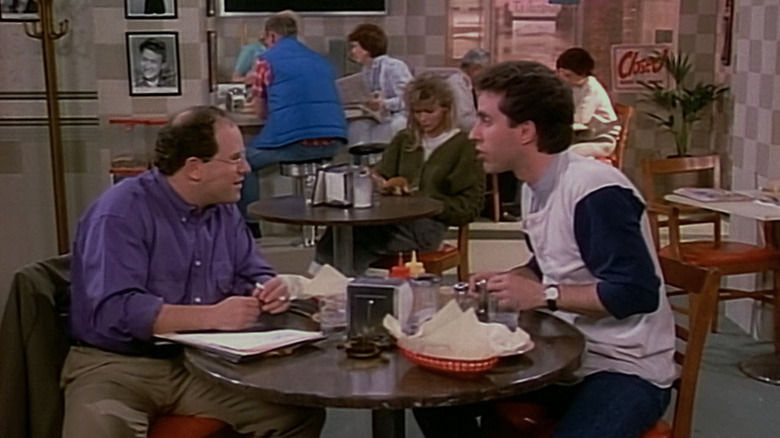Why Is The First Episode Of A TV Series Called A Pilot?
If you've paid attention to discussions of television, you'll almost certainly have come across the word "pilot" used in reference to the first episode of the first season of a series. And if you're a TV enthusiast, you've probably incorporated it into your own vocabulary. But hold on, what does flying a plane have to do with your favorite sitcom?
In fact, the term comes from science, not aviation. When scientists want to know whether a certain topic should be studied further, they conduct what's called a pilot study. These studies determine, among other things, whether the research might be viable and how it should be conducted. In addition, they are smaller in scale than a full study, expending fewer resources so that the bulk of the time, money, and effort researchers will spend can be directed to the main research project.
Similarly, a TV pilot is used to determine whether the concept for a show is a good idea. They are often shot on their own to test with audiences and make other tweaks before a network orders the full season — if they place an order at all. Since networks don't want to sink a ton of money into something that could end up being a flop, the pilot episode is a cost-effective way to gauge interest. In fact, the creatives behind a TV series often use their own money or court investors to shoot a low-budget pilot as part of a pitch to studios and networks as a proof of concept. But even some of the most famous TV pilots you've seen aren't the originals, since the term has multiple meanings.
Pilot episodes determine the course of a series
Over the course of TV history, the definition of a pilot has broadened to include the premiere episode of a series that makes it to air rather than only referring to the initial concept episode. Even when shows go direct-to-series, meaning a network or streamer orders the entire first season at once, people may still refer to the first episode as the pilot episode. This has also given rise to the term pilot season since companies like Netflix often decide whether to order a second season based on the performance of the first.
With all of this in mind, it's easy to understand why some pilot episodes don't feel quite the same as the rest of a show's first season. There might have been substantial changes made behind the scenes in between shooting the pilot and the rest of the season. In some cases, entire roles are recast after the pilot, while more often changes include writers, costume designers, set designers, and other key creatives. Often, pilots will be re-shot to try and streamline the overall season. For example, the unaired pilot for "Game of Thrones" was radically different than the version fans saw on HBO.

